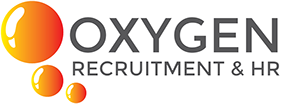Navigating Complexity: Human Resources as a Rewarding Career Choice in Australia
Amidst the ever-evolving landscape of Australian Industrial Relations (IR), a career in Human Resources (HR) stands out as a resilient and rewarding choice. Despite the challenges posed by the intricate web of regulations and reforms, HR professionals play a vital role in shaping organisational culture, fostering employee well-being, and driving strategic initiatives. In this article, we’ll explore why HR remains a compelling career path in Australia, even amidst the complexities of the current IR environment.
- Dynamic and Varied Role:
HR encompasses a diverse range of responsibilities, from recruitment and talent management to performance evaluation and workplace compliance. This multifaceted nature ensures that no two days are the same for HR professionals, offering constant opportunities for growth and development. Additionally, an HR role often provides opportunities to get to know many key stakeholders across a business.

- Impactful Contribution to Organisations:
HR professionals serve as the backbone of organisations, often bridging the gap between management and employees. By implementing effective HR strategies, they contribute to enhanced productivity, employee engagement, and overall organisational success1. Their work directly influences employee morale, retention rates, and ultimately, the bottom line.
- Advocates for Employee Rights and Well-being:
In the midst of complex IR regulations, HR professionals serve as advocates for employee rights and well-being. They navigate the intricacies of employment laws and regulations to ensure fair treatment, equal opportunities, and a safe work environment for all employees2. Implementing initiatives that safe guard employees are often amongst the top achievements listed by HR leaders we speak to, when reflecting on their careers.
- Strategic Business Partner:
HR professionals are increasingly recognised as strategic business partners, playing a pivotal role in shaping organisational objectives and driving performance. By aligning HR initiatives with broader business goals, they contribute to sustainable growth and competitive advantage3. Most progressive organisations now include an HR leader in their Executive team and we see many varied and strategic HR leadership roles being recruited now.
- Adaptability in Changing Environments:
The Australian IR landscape is constantly evolving, with legislative changes and policy reforms shaping workplace practices. HR professionals thrive in dynamic environments, leveraging their expertise to navigate complexities and implement effective HR solutions that comply with regulatory requirements4.
- Opportunities for Professional Development:
The field of HR offers abundant opportunities for professional development and specialisation. From obtaining HR certifications to pursuing advanced degrees in HR management or industrial relations, HR professionals have avenues to enhance their skills and stay abreast of industry trends5.

Conclusion:
Despite the complexities of the Australian Industrial Relations environment, a career in Human Resources remains an attractive and fulfilling choice. HR professionals play a crucial role in driving organisational success, advocating for employee rights, and navigating regulatory challenges with agility and expertise. By embracing the dynamic nature of the HR profession and leveraging opportunities for growth and development, aspiring HR professionals can embark on a rewarding career path that makes a meaningful impact on organisations and individuals alike.
Footnotes
- SHRM. (2019). The Business Case for Human Resources. Retrieved from https://www.shrm.org/hr-today/news/hr-magazine/summer2019/pages/the-business-case-for-human-resources.aspx
- Fair Work Ombudsman. (2022). Workplace rights and entitlements. Retrieved from https://www.fairwork.gov.au/employee-entitlements/workplace-rights ↩
- Deloitte. (2017). Global Human Capital Trends. Retrieved from https://www2.deloitte.com/content/dam/Deloitte/au/Documents/human-capital/deloitte-au-hc-global-human-capital-trends-2017.pdf
- Department of Education, Skills and Employment. (2022). Workplace Relations Framework. Retrieved from https://www.dese.gov.au/our-responsibilities/employment-policies/workplace-relations
- Australian HR Institute. (2022). Education & Training. Retrieved from https://www.ahri.com.au/education-and-training ↩
